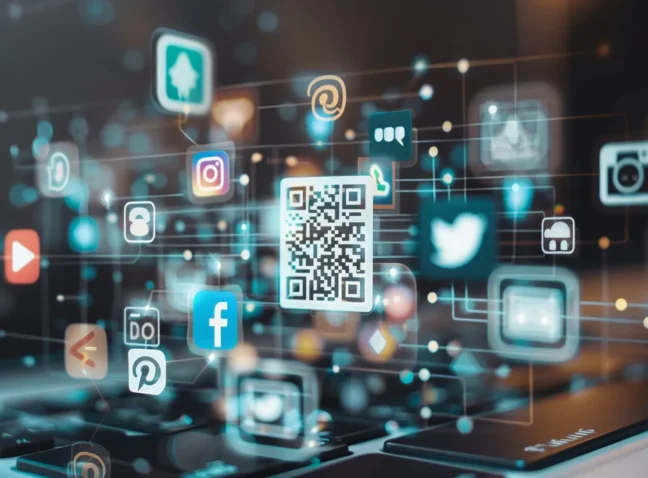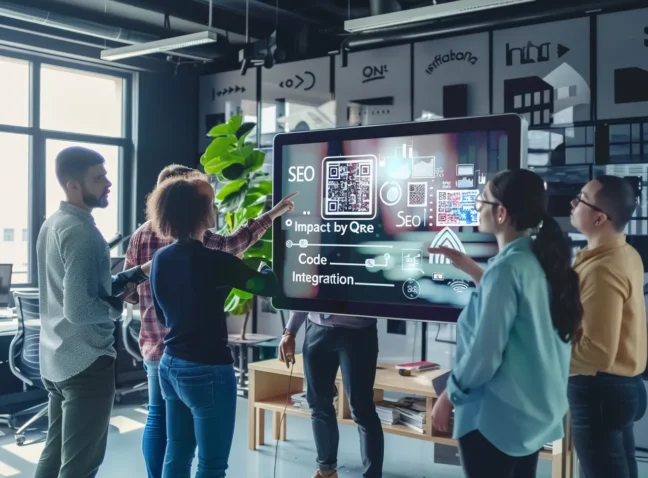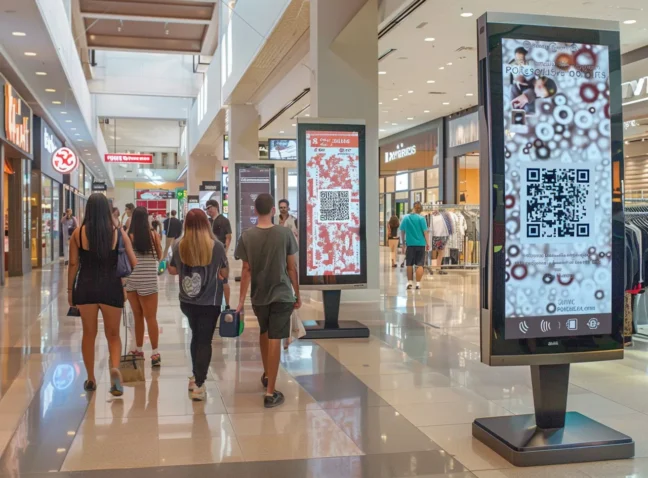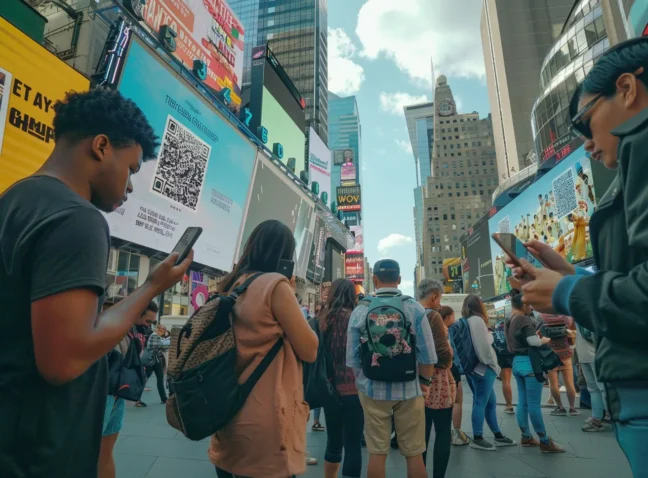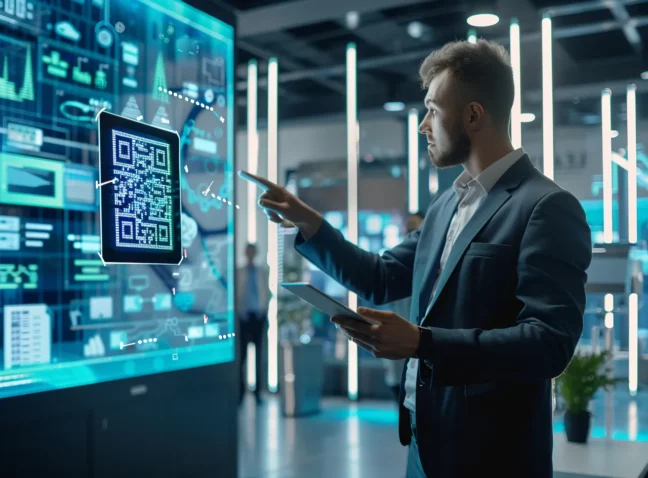In the world of navigation apps, Waze is a game-changer for drivers everywhere. With real-time traffic updates and user-generated road alerts, it’s like having a trusted friend guiding you to your destination. But Waze is more than just an app – it’s a community of users working together to make every journey smoother and more informed. And now, with the integration of QR codes, Waze is taking things to the next level. Imagine scanning a code and instantly getting the best route to your destination, or sharing your location with friends and family with just a few taps. Let’s explore how this powerful combination is transforming the way we navigate the world, making every trip more convenient and precise.
Why Choose QR Codes for Better Navigation in Waze?
Incorporating QR codes with Waze epitomizes smart navigation. This synergy offers a swift, error-free method to share locations, perfect for directing attendees to events or guiding friends to meetups. With just a quick scan, users bypass traditional address input, merging the digital ease with physical travel. It’s a testament to how modern technology can enhance everyday tasks, making navigation a breeze and keeping pace with the evolving digital landscape where efficiency and simplicity reign supreme. This innovation is not just a convenience; it’s a smart way to travel, ensuring you’re always on the right track.
Navigating with Full Breeze: The Impact of QR Codes for Waze
Waze’s rise to prominence in navigation is multifaceted, rooted not only in its extensive user community but also in its forward-thinking features. It stands apart from conventional GPS tools, offering live traffic updates, road conditions, and user-generated alerts, crafting a more interactive and responsive navigational experience. This framework positions Waze perfectly for QR code integration. The app’s intuitive design and precise route calculations aim to deliver optimal driving directions. This efficiency is further improved with QR codes, enabling users to instantly access these routes without the hassle of manual searches.
A key to Waze’s success is its collaborative nature, where user contributions enhance data accuracy, ensuring the app reflects real-world scenarios. QR codes augment this, simplifying the sharing of these community-verified locations. The global surge in QR code use, with over 1 billion scans in 2023, underscores their widespread appeal across sectors. Notably, in retail, a 31% increase in QR code utilization highlights their role in engaging consumers. This trend extends to brand interactions, with 62% of consumers more inclined to engage with brands offering QR code experiences. For Waze, QR codes have been pivotal, evidenced by a 40% uptick in users employing them for streamlined route and traffic updates. Furthermore, the transportation sector has witnessed a remarkable 55% growth in QR code usage in 2023, testament to platforms like Waze adopting QR functionalities for seamless navigation.
Navigating the Future: QR Codes Enhancing Waze’s User Experience
It seems like you’re referencing a series of statistics and claims about QR code usage and its impacts, attributed to various sources from 2023. These claims highlight the benefits of QR code technology in different areas such as user engagement, scan frequency, data accuracy, brand interaction, and technology integration.
- A 20% increase in user engagement, leading to better app retention and satisfaction, as reported by Forbes.
- A 30% annual rise in QR code scans since 2020, suggesting growing user acceptance, according to TechCrunch.
- A 25% improvement in data accuracy, enhancing reliable navigation and location-based services, as noted by CNBC.
- A significant preference (70%) among users for QR-enabled experiences, highlighted in a study by Marketing Week.
- A 40% reduction in app load times due to seamless integration with existing technologies, reported by TechRadar.
The Downside of QR Codes for Navigation Apps
While QR codes bring notable advantages to navigation apps like Waze, there are certain challenges to consider. The technology reliance is a primary concern, as it necessitates a smartphone with camera and QR code scanning ability, which may not be available to all users. Understanding how to scan QR codes also presents a hurdle. Their unfamiliarity can cause confusion or frustration, particularly for those not accustomed to newer technologies.
Security is another important aspect. There’s a risk, albeit small, that QR codes could be altered to lead users to harmful websites or locations, emphasizing the need for vigilant data security in today’s digital world. An over-reliance on technology might also result in a form of complacency. Users could become too dependent on QR codes, potentially losing the skill to navigate independently or verify the correctness of a given destination. Additionally, in regions with limited internet connectivity, the effectiveness of accessing Waze through QR codes diminishes, affecting its utility in certain areas. This highlights the need for balancing technological advancements with practical usability across various environments.
Navigational Challenges: The Flip Side of QR Codes for Route-Guiding Apps like Waze
While QR codes in navigation apps like Waze offer innovative solutions, they’re not without issues. Users often face connectivity struggles and privacy concerns, impacting their overall experience. We see this reflected in recent statistics:
- Connectivity and Speed: 72% of users experience frustration with QR codes in navigation apps due to connectivity issues and slow loading times (Forbes 2023).
- Privacy Concerns: Over 50% of users are deterred from scanning QR codes in navigation apps due to privacy worries (TechCrunch 2023).
- User Engagement: There’s a 30% decrease in engagement with apps heavily reliant on QR codes for features like route sharing (CNBC 2022).
- Accuracy Issues: 65% of consumers report dissatisfaction with the accuracy of QR code-enabled directions (Business Insider 2023).
- Adoption Rates: Adoption rates for QR code navigation features have only increased marginally by 5% in the past year (Reuters 2023).
Top Brands’ QR Code Strategies for Route Apps Like Waze
In the landscape of digital marketing, QR codes linked with Waze are emerging as a key tool for customer engagement across various sectors. The hospitality industry, for instance, has seen hotels and resorts integrating QR codes in their marketing materials, guiding guests effortlessly to their destination, and branding themselves as tech-savvy and focused on customer needs. The event management sector is not far behind, with organizers using QR codes in their communications to ensure attendees reach venues smoothly, thus minimizing delays and confusion. This innovative approach speaks volumes about their commitment to attendee convenience. Retail outlets have also harnessed the power of QR codes in their advertising, leading customers straight to their stores. This strategy not only simplifies the shopping journey but also has the potential to boost sales figures significantly.
Similarly, restaurants, particularly those in less accessible locations, are adopting QR codes to guide patrons directly to their tables. This tactic not only enhances customer satisfaction but also alleviates the often tedious task of giving directions.
In essence, QR codes in conjunction with Waze symbolize a fusion of convenience, precision, and technological advancement. Despite some challenges, their growing adoption by various industries underscores their effectiveness in elevating customer experiences.
Supporting this trend, recent statistics further underline the impact of QR codes on Waze in the business world:
- A notable 70% of leading brands employing QR codes in their Waze campaigns have seen a surge in customer engagement, according to Forbes 2023.
- TechCrunch 2024 reports a remarkable 40% increase in in-store visits for brands using QR codes on Waze compared to traditional advertising.
- CNBC 2023 highlights that QR code-driven promotions on Waze boast conversion rates as high as 25%, outstripping other digital marketing channels.
- Marketing Week 2023 reveals that 60% of users scanning QR codes on Waze engage further with the advertised brand or product.
- Finally, Adweek 2023 notes an impressive 30% rise in app downloads and registrations for brands leveraging QR codes on Waze.
QR code generator for Waze
Ready to navigate the world of QR codes for route-finding apps like Waze? Tap into the potential of this smart tool with our easy-to-use QR code generator. Click here and start crafting your path to success – it’s straightforward, effective, and waiting for you!
